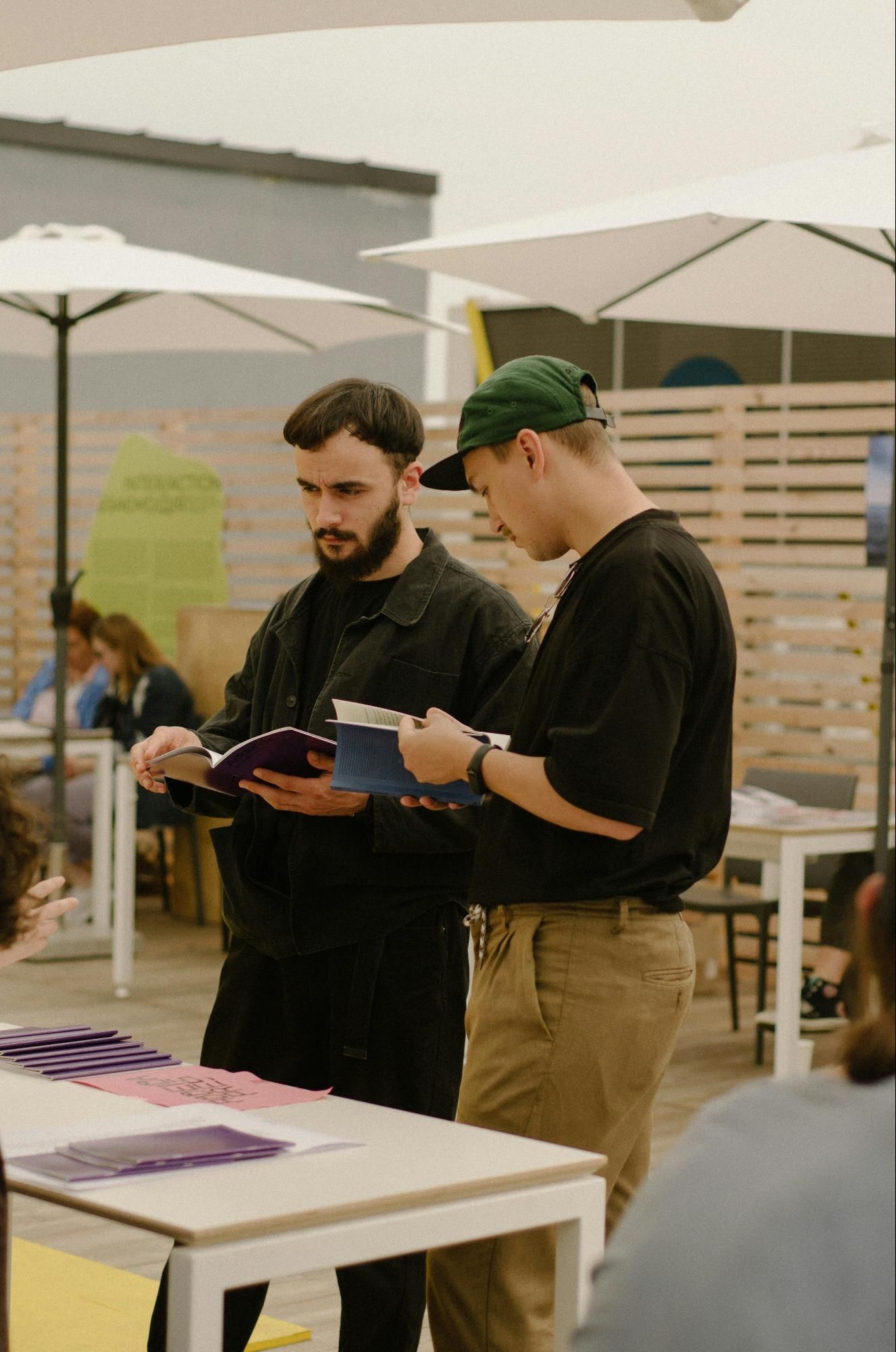Creating a Nurturing Space for Writers at Retreats
Creating a nurturing space for writers at retreats involves carefully crafting an environment that fosters creativity and productivity. The ideal retreat climate encourages learning, editing, and even speech development, much like a kindergarten for grown-up wordsmiths. These havens provide writers with the perfect setting to hone their craft and bring their stories to life. In this article, we'll explore how to design the ultimate writer's retreat that caters to every aspect of the creative process, from brainstorming to final edits.
KEY TAKEAWAYS
- Writing retreats provide supportive environments that foster creativity and productivity
- Thoughtful design of retreat spaces enhances comfort and inspiration for writers
- Balancing solitude and collaboration helps writers grow and connect with peers
- Integrating nature and wellness practices improves the overall writing experience
- Technology and unplugged sessions offer a balanced approach to modern writing retreats

Designing the Ideal Writer's Haven
Creating an ideal writer's haven at retreats goes beyond providing a desk and chair. It involves thoughtful design that nurtures creativity, supports comfort, and enhances productivity. From selecting the perfect location to incorporating natural elements, every aspect plays a role in fostering a space where writers can flourish. Proper lighting, ergonomic furniture, and inspiring surroundings work together to create an environment that sparks imagination and facilitates the flow of ideas. This carefully crafted space becomes a sanctuary where writers can immerse themselves in their craft, honing their language skills, improving literacy, and filling notebooks with their thoughts. The pedagogy of writing retreat design considers not only the physical space but also how it influences the writer's mindset, potentially even impacting their spelling and overall writing process.
Selecting the Right Location for Creativity
Selecting the right location for a writer's retreat involves careful consideration of the surroundings and atmosphere. The ideal spot should inspire creativity and provide a peaceful environment for writers to focus on their craft. A location steeped in culture can spark new ideas and broaden perspectives, while quiet spaces allow for deep listening and observation.
Data shows that natural settings often boost creativity and productivity. Writers benefit from spaces that offer a mix of indoor comfort and outdoor beauty. An inviting location encourages participants to disconnect from daily distractions, like constant email address checking, and immerse themselves in their writing:
- Choose a serene, natural setting
- Ensure comfortable indoor spaces
- Provide areas for both solitude and collaboration
- Offer inspiring views or local cultural experiences
- Minimize technological distractions
Crafting Spaces That Inspire Writing
Crafting spaces that inspire writing involves thoughtful design and attention to detail. Writers need a variety of tools, from pencils to charts, to help them achieve their writing goals. The space should encourage creativity and provide the necessary resources for writers to bring their fantasy worlds to life.
A well-designed writing space balances functionality with inspiration. It should offer comfortable seating, ample natural light, and areas for both focused work and relaxation. Consider including visual aids like mood boards or inspiring quotes to help writers stay motivated and on track with their goals.
Ergonomics and Comfort: A Priority for Writers
Ergonomics and comfort play a crucial role in sustaining a writer's motivation and productivity. A well-designed workspace considers the physical needs of writers, ensuring they can focus on generating ideas in the english language without discomfort or distraction.
Proper ergonomics support writers through long periods of work, allowing them to concentrate on crafting their paper or story. Students and seasoned authors alike benefit from comfortable seating, adjustable desks, and proper lighting, which help prevent fatigue and maintain creative flow.
Balancing Natural and Artificial Lighting
Balancing natural and artificial lighting creates an environment that supports writers' understanding and imagination. Natural light boosts mood and creativity, while well-placed artificial lighting ensures consistent illumination for reading and writing tasks.
Writers benefit from a space that adapts to their needs throughout the day, enhancing their spoken language skills and supporting social-emotional learning (SEL). Adjustable lighting options allow writers to customize their environment, promoting focus and productivity during their retreat experience.
Incorporating Elements of Nature
Nature elements in writing spaces boost creativity and well-being. Plants, natural materials, and outdoor views enhance the retreat experience, fostering a connection with the environment. This approach builds credibility for the retreat's management, showing their commitment to providing an optimal writing atmosphere.
Incorporating nature also supports the publishing process by inspiring fresh ideas and perspectives. Writers can find new angles for their work, whether in fiction, non-fiction, or even mathematics-related content. Expert designers often use nature-inspired elements to create spaces that nurture creativity and productivity:
Tailoring Retreat Programs for Every Writer
Tailoring retreat programs to suit diverse writers requires a thoughtful approach that considers individual needs and group dynamics. By assessing attendees' goals, constructing flexible schedules, and offering innovative workshops, retreats can create an environment where creativity thrives. The natural setting stimulates the brain, encouraging fresh ideas and meaningful dialogue among participants. Balancing solitary writing time with social interactions fosters a supportive community, while limited internet access minimizes distractions. This carefully crafted experience allows writers to focus on their craft, receive valuable feedback, and leave the retreat feeling inspired and accomplished.
Assessing the Needs of Your Attendees
Assessing attendees' needs serves as an anchor for designing effective writing workshops. Retreat organizers gather information about participants' writing goals, experience levels, and preferred genres to tailor the program. This approach ensures that the education provided aligns with writers' expectations and supports their growth.
Attention to individual needs allows retreat leaders to create a supportive environment for writers of all backgrounds, including those in higher education. By understanding each attendee's unique requirements, organizers can offer personalized guidance and resources that enhance the retreat experience. This tailored approach maximizes the value of the writing workshop for all participants.
Constructing a Versatile Schedule
A versatile schedule forms the backbone of a successful writing retreat, allowing participants to take ownership of their learning experience. The curriculum balances structured activities with free writing time, accommodating various learning styles and writing preferences, much like planning a birthday celebration that caters to diverse tastes.
Retreat organizers consider the needs of writers working in their second language, ensuring ample time for reflection and revision. They also incorporate sessions on emerging topics, such as the impact of artificial intelligence on writing, to keep the program relevant and engaging for all attendees
Workshop Themes That Spark Innovation
Workshop themes that spark innovation challenge writers to explore new horizons in their craft. Organizers design sessions that push participants beyond their comfort zones, encouraging them to experiment with different genres and styles. These workshops often incorporate peer review sessions, allowing writers to gain valuable feedback and fresh perspectives on their work.
Innovative workshops may focus on blending elements of various literary traditions, exploring the intersection of fiction and reality, or examining the importance of diverse voices in literature. These themes inspire writers to think critically about their craft and push the boundaries of their creativity. Organizers might structure workshops around:
- Exploring unconventional narrative structures
- Incorporating multimedia elements into storytelling
- Examining the role of technology in modern literature
- Developing characters across multiple genres
- Crafting immersive worlds for fiction and non-fiction alike

The Role of Tranquility in Creative Writing
Tranquility plays a vital role in fostering creative writing at retreats. A peaceful environment allows writers to tap into their deepest wells of storytelling and emotion, free from the distractions of daily life. By providing quiet zones for deep focus, embracing the impact of silence on creativity, and offering outdoor spaces for reflection and writing, retreats create an atmosphere that nurtures the writing process. This approach benefits all writers who may find solace in a calm setting. Just as a classroom library offers a sanctuary for young minds, a well-designed retreat allows writers to explore their craft and develop their unique voices.
Creating Quiet Zones for Deep Focus
Creating quiet zones for deep focus allows writers to immerse themselves in their book projects without distractions. These spaces provide a sanctuary for writers to practice their craft, develop their leadership skills, and pursue their dreams through words.
Retreat organizers design these zones to foster uninterrupted creativity, encouraging meaningful conversation with oneself and the written page. By offering a variety of quiet spaces, retreats cater to different writing styles and preferences, ensuring each participant finds their ideal environment for productivity:
The Impact of Silence on Creativity
Silence creates a powerful learning environment for creative writing. Research shows that quiet spaces allow writers to delve deeper into their thoughts and imagination, leading to more profound and original work. This best practice fosters a sense of pleasure in the writing process, enabling authors to fully immerse themselves in their craft.
Creative writing thrives in tranquil settings where distractions are minimized. The absence of noise allows writers to focus on their internal dialogue, resulting in more authentic and compelling narratives. By embracing silence, retreat organizers provide an optimal atmosphere for writers to explore their ideas and refine their skills.
Outdoor Spaces for Reflection and Writing
Outdoor spaces at writing retreats offer writers a unique opportunity to hone their skills and spark innovation. The natural environment stimulates creativity, helping authors overcome fear and writer's block. These areas allow writers to reflect on their work, refine their grammar, and find inspiration in their surroundings.
Retreat organizers design outdoor writing spaces for various preferences, from secluded nooks to open areas with scenic views. These spaces encourage writers to step away from the role of parent or caregiver and focus solely on their craft. The outdoor setting provides a refreshing change of scenery that can lead to new perspectives and
ideas:
- Quiet garden spots for introspection
- Scenic overlooks for expansive thinking
- Wooded paths for walking and brainstorming
- Comfortable seating areas for extended writing sessions
- Open meadows for group discussions and workshops

Incorporating Community and Collaboration
Writing retreats foster a sense of community and collaboration, creating an atmosphere where writers can grow together. Through facilitated group discussions, writers sharpen their persuasive writing skills and receive valuable feedback on their work. Partnering with authors for collaborative projects encourages creative synergy and expands their horizons. Hosting talks and Q&A sessions with established authors provides insights into the craft of writing, from perfecting punctuation to conducting effective interviews for journalism pieces. These interactive elements transform the retreat experience, nurturing a supportive environment where writers can learn from one another and refine their skills.
Facilitated Group Discussions for Feedback
Facilitated group discussions provide a national platform for writers to share their work and receive constructive feedback. These sessions allow participants to put pen to paper with confidence, knowing they'll gain valuable knowledge from their peers. Skilled facilitators guide the conversations, ensuring a supportive environment where writers can explore new concepts and refine their craft.
Retreat organizers often use a rubric to structure these discussions, helping writers focus on specific aspects of their work. This approach fosters a collaborative atmosphere where authors can learn from each other's strengths and weaknesses. The feedback process not only improves individual pieces but also enhances the overall writing skills of the group. These discussions typically follow a structured format:
- Author reads a portion of their work
- Group members offer positive feedback
- Constructive criticism is shared using the provided rubric
- Author reflects on the feedback received
- Facilitator summarizes key points and suggests next steps
Partnering Writers for Collaborative Projects
Partnering writers for collaborative projects at retreats fosters creativity and builds lasting connections. These partnerships encourage writers to explore new genres and styles, combining their primary strengths with secondary skills to create unique works. The collaborative process also promotes autonomy as writers learn to balance their individual voices with group goals.
Retreat organizers often facilitate free writing sessions where partnered writers can brainstorm ideas together, much like middle school students working on group assignments. These collaborative projects not only result in innovative writing but also help participants develop essential teamwork skills that extend beyond the retreat experience.
Hosting Authors’ Talks and Q&A Sessions
Hosting authors' talks and Q&A sessions at writing retreats provides invaluable opportunities for participants to gain insights from experienced writers. These events stimulate creativity and expand the mind, offering a unique workshop experience that goes beyond traditional writing exercises. Retreat organizers carefully select guest authors who can inspire and educate attendees, fostering an environment of continuous learning and growth.
These sessions often focus on various aspects of the writing process, from developing empathy for characters to crafting a compelling website presence. Authors share their personal journeys, offering encouragement and practical advice to aspiring writers. The Q&A format allows for interactive discussions, addressing specific concerns and curiosities of retreat participants:
- Exploring the creative process of established authors
- Discussing strategies for overcoming writer's block
- Sharing insights on navigating the publishing industry
- Offering tips for building a strong author platform
- Providing guidance on balancing writing with other life responsibilitie

Supporting the Writing Process With Resources
Writing retreats designed to nurture creativity offer a wealth of resources to support the writing process. By providing essential writing and research tools, access to a well-stocked library, and guided sessions with mentors, these retreats create an environment that fosters fluency and enhances reading comprehension. The thoughtful design of these spaces encourages writers to develop their skills, from improving typing speed to refining their behavior during focused writing sessions. These resources not only aid in the creation of new work but also help writers overcome challenges and grow in their craft..
Provision of Writing and Research Tools
Writing retreats equip participants with essential tools to enhance their creative process. From state-of-the-art word processors to advanced research software, these resources foster a productive mindset and support collaborative writing efforts. Retreat organizers prioritize accessibility, ensuring that writers of all abilities can utilize the provided tools effectively.
The provision of specialized software, such as illustrator programs for visual storytelling, broadens the scope of creative expression. These tools, combined with effective classroom management techniques, create an environment where writers can focus on their craft without technological barriers. By offering a diverse range of writing and research tools, retreats empower participants to explore new techniques and push the boundaries of their creativity.
Access to a Well-Stocked Library
Access to a well-stocked library at writing retreats provides writers with a wealth of resources for inspiration and research. These libraries often include assistive technology to support writers with diverse needs, fostering an inclusive environment for vocabulary development and creative exploration. The carefully curated collection covers a wide range of genres, including science fiction and non-fiction, to cater to various writing interests.
Retreat organizers focus on the organization of library materials to ensure easy access and efficient use of resources. They incorporate technology to enhance the library experience, offering digital catalogs and e-book options alongside traditional print materials. This blend of resources supports writers in their quest for knowledge and creativity:
Guided Writing Sessions With Mentors
Guided writing sessions with mentors offer writers personalized support to enhance their craft. These sessions boost student engagement by providing targeted feedback on various aspects of writing, from genre-specific techniques to improving handwriting skills. Mentors work closely with retreat participants to address individual needs and foster growth in their chosen writing style.
Writers benefit from one-on-one guidance tailored to their specific goals and challenges. Mentors help writers refine their phonics understanding, essential for crafting compelling dialogue and descriptions. These sessions create a supportive environment where writers can explore new ideas, overcome obstacles, and develop their unique voice under expert guidance.

Fostering Personal Growth Alongside Writing
Writing retreats offer more than just a space to put words on paper; they provide an opportunity for personal growth and self-discovery. By integrating wellness and mindfulness practices, encouraging personal goal setting, and recognizing progress, these retreats enable writers to build confidence and develop their craft. This holistic approach to writing instruction goes beyond the traditional school setting, fostering an environment where authors can print their thoughts freely while nurturing their overall well-being. As writers engage in these personal development activities, they often find their creative abilities flourishing alongside their personal growth.
Integrating Wellness and Mindfulness Practices
Writing retreats integrate wellness and mindfulness practices to create a nurturing environment for authors. These practices help writers manage the complexity of their craft while fostering a sense of community. Retreat organizers incorporate meditation, yoga, and other mindfulness techniques to reduce stress and enhance creativity.
By teaching writing alongside wellness practices, retreats provide valuable information on maintaining a healthy work-life balance. This approach helps writers approach their "homework" with renewed focus and energy, leading to more productive and fulfilling writing sessions. The integration of wellness and mindfulness supports personal growth, allowing writers to develop both their craft and their overall well-being.
Encouraging Personal Goal Setting
Writing retreats encourage personal goal setting, helping authors expand their vocabulary and explore diverse topics, including social studies. This approach supports writers of all backgrounds, including those with disabilities, fostering an inclusive environment where everyone can set and achieve meaningful objectives. Retreat organizers employ a gradual release of responsibility model, guiding writers as they develop their own goals and strategies for success.
Goal setting at retreats transcends gender boundaries, empowering all writers to pursue their unique aspirations. By encouraging personal goal setting, retreats create a supportive atmosphere where authors can challenge themselves, overcome obstacles, and make significant progress in their writing journeys. This process not only enhances writing skills but also promotes personal growth and self-confidence.
Recognizing and Celebrating Progress
Writing retreats celebrate progress, recognizing writers' achievements from completing a picture book to refining their phonological awareness. Organizers create a supportive environment where authors can share their successes, whether it's improving their phonemic awareness or enhancing their memory for storytelling details. This recognition boosts confidence and motivates writers to continue honing their skills.
Retreat leaders often set up a dedicated office space where writers can display their work and receive acknowledgment from peers. This practice fosters a sense of accomplishment and encourages writers to push their boundaries, leading to personal growth alongside their writing development. By highlighting individual progress, retreats create a positive atmosphere that fuels creativity and inspires continued effort.

Ensuring a Personalized and Inclusive Experience
Creating an inclusive and personalized experience at writing retreats ensures every participant feels valued and supported. By adapting spaces for accessibility, incorporating cultural sensitivity in programming, and offering diverse dietary options, retreat organizers transform the learning space into a welcoming environment for all writers. Like a teacher using a whiteboard to illustrate complex ideas, these thoughtful accommodations help writers craft their narratives with confidence. This approach not only enhances the retreat experience but also enriches the paragraphs and stories that emerge, reflecting the diverse perspectives of the writing community.
Adapting Spaces for Accessibility
Writing retreats adapt spaces for accessibility, ensuring all participants, including students with diverse needs, can fully engage in their creative pursuits. These adaptations may include wheelchair ramps, adjustable desks, and assistive technology, allowing writers to focus on crafting their memoirs or graphic novels without physical barriers.
Retreat organizers draw inspiration from inclusive spaces, implementing features that cater to various sensory needs and mobility requirements. By creating an accessible environment, retreats offer praise-worthy accommodations that empower writers of all abilities to thrive and share their unique stories.
Cultural Sensitivity in Retreat Programming
Writing retreats embrace cultural sensitivity in their programming, recognizing the diverse backgrounds of participants and fostering an inclusive environment for all writers. This approach extends to various forms of expression, including poetry, ensuring that writers from different cultures feel respected and valued when sharing their work during peer feedback sessions.
Retreat organizers consider language acquisition challenges, much like in a preschool setting, to support writers working in their non-native languages. They provide resources and guidance to help participants craft well-structured sentences, regardless of their cultural or linguistic background, creating a supportive atmosphere for all writers to flourish.
Offering a Variety of Dietary Options
Writing retreats offer a variety of dietary options to support the diverse needs of participants, recognizing that proper nutrition plays a crucial role in the writing process. By catering to different dietary requirements, retreat organizers ensure that writers can focus on their syntax and linguistics rather than worrying about meal options.
This inclusive approach to dining enhances the overall retreat experience, allowing writers to engage fully in brainstorming sessions and creative activities. The thoughtful provision of diverse meal choices demonstrates the organizers' reason for creating a nurturing environment where writers can thrive both physically and mentally.

Harnessing Technology to Enhance Creative Writing
Writing retreats harness technology to enhance the creative process while maintaining a balance with traditional methods. By integrating digital tools and apps, writers can streamline their workflow and access resources that support their craft. However, recognizing the importance of disconnecting, retreats also offer unplugged sessions to foster deep focus and creativity. To extend the benefits beyond the retreat itself, online platforms provide ongoing community support, allowing writers to stay connected and motivated long after they return home. This blend of technological innovation and mindful disconnection creates an environment where writers can thrive, combining the best of both worlds to fuel their creative journey
Digital Tools and Apps to Aid Writing
Writing retreats incorporate digital tools and apps to enhance the creative process. These technologies range from advanced word processors with built-in grammar checks to specialized software for outlining and organizing ideas, providing writers with powerful resources to refine their craft.
Retreat organizers carefully select apps that support various aspects of writing, such as research tools, citation managers, and collaborative platforms. By introducing writers to these digital aids, retreats equip participants with valuable skills they can continue to use long after the event concludes, fostering ongoing growth and productivity in their writing endeavors.
Balancing Tech Use With Unplugged Sessions
Writing retreats strike a balance between leveraging technology and providing unplugged sessions to foster creativity. While digital tools enhance productivity, designated tech-free periods allow writers to connect with their inner voice and surroundings, free from digital distractions.
Retreat organizers carefully structure the schedule to include both tech-enabled and unplugged writing sessions. This approach recognizes the value of both modern tools and traditional writing methods, catering to diverse preferences and promoting a well-rounded creative experience.
Different session types offer unique benefits to suit various writing preferences and needs. In a tech-enabled session, writers benefit from enhanced research capabilities and efficient editing, leveraging technology to streamline their process. Unplugged sessions, on the other hand, provide an opportunity for deep focus, fostering a connection with nature while reducing screen fatigue. Lastly, blended sessions offer flexibility by combining both tech-enabled and unplugged approaches, allowing for diverse writing experiences that adapt to different environments and creative flows.
Online Platforms for Ongoing Community Support
Writing retreats utilize online platforms to foster ongoing community support among participants. These digital spaces allow writers to stay connected, share their progress, and seek advice long after the retreat ends, creating a virtual extension of the supportive environment they experienced in person.
Retreat organizers curate these online communities to ensure they remain valuable resources for writers. They often include features such as writing prompts, virtual workshops, and opportunities for peer feedback, helping participants maintain momentum in their writing journey and continue to grow as authors.
Conclusion
Creating a nurturing space for writers at retreats is essential for fostering creativity, productivity, and personal growth. Thoughtful design of physical spaces, combined with tailored programs and supportive resources, enables writers to fully immerse themselves in their craft. By incorporating elements of tranquility, community collaboration, and personalized experiences, retreats provide an environment where writers can thrive and develop their skills. Ultimately, a well-crafted retreat space empowers authors to unlock their potential, push creative boundaries, and produce their best work.
© 2024 All Rights Reserved | Keira Brinton
All Rights Reserved | Keira Brinton | Website Design by Tally Creative














